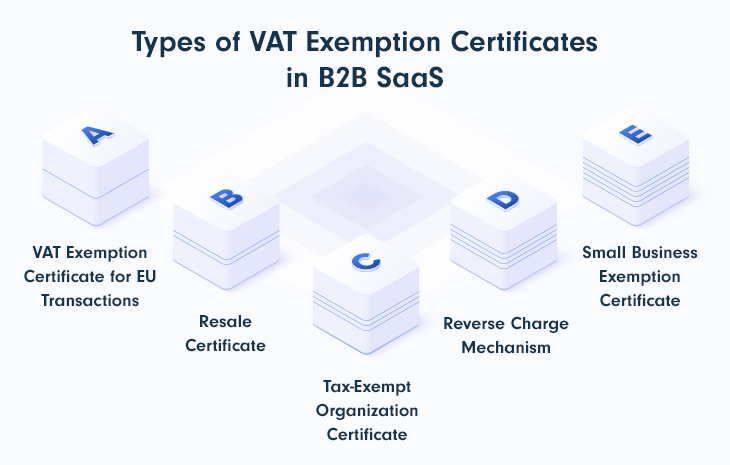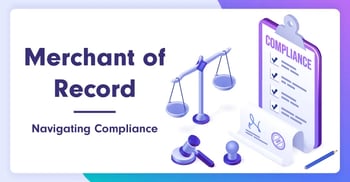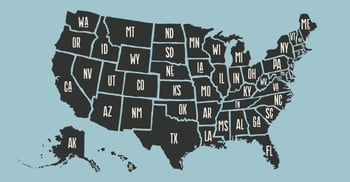SaaS Sales Tax in Europe: How To Sell Software Globally

Software companies now have a previously untapped potential to reach audiences worldwide thanks to the digital marketplace, but these opportunities also present difficult legal problems.
Navigating the SaaS VAT compliance landscape is not only a legal requirement for companies hoping to take advantage of the European software market, but it is also an essential operation that has the power to make or break your expansion plan.
This guide explains how working with a specialist Merchant of Record like PayPro Global can turn EU VAT compliance from a hassle into a competitive advantage, freeing you up to concentrate on what really counts—creating outstanding products and expanding your clientele.
SaaS sales tax in Europe doesn’t have to be a challenge, but an advantage.
Understanding European Sales Tax: The Essentials
Before we get into the nitty-gritty of the VAT management process sales tax obligations in Europe, we need to address the elephant in the room - and that’s specifically what this tax stands for.
What is VAT and Why Does It Matter for SaaS?
The consumption tax known as the Value-Added Tax (VAT) is imposed on goods and services at every point in the supply chain where value is added. In contrast to sales tax in the United States, European sales tax is:
- Although the methodology is standardized, the cross-border VAT rates (17–27%) differ among European nations.
- B2B and B2C transactions are handled differently.
- Constantly changing as a result of jurisdiction-specific regulatory changes
Understanding SaaS VAT compliance is essential, as the EU VAT Directive imposes special compliance obligations on digital services.
- Germany: 19%
- UK: 20%
- France: 20%
- Italy: 22%
- Sweden: 25%
Check our PayPro Global's SaaS Sales Tax guide to find out the updated EU VAT rates.
When and How to Apply EU VAT: The Critical Decision Framework
Two basic questions about saas sales tax in Europe must be addressed before starting to charge your customers:
- Where is your client located?
- Is the transaction B2C or B2B?
B2B Transactions: The Reverse-Charge Mechanism
The reverse charge mechanism usually transfers the VAT obligation to the buyer in business-to-business transactions. But this calls for:
- Getting the customer's VAT ID and verifying it (VAT ID Validation)
- Making it obvious on invoices that a reverse charge may be applied to the transaction
- Keeping accurate records for prospective audits
B2C Transactions: The €10,000 Threshold Rule
For sales from businesses to consumers:
- VAT must be charged to all B2C clients.
- If yearly cross-border business-to-consumer sales are less than €10,000, you can use the VAT rate from your home country.
- The VAT rate applicable to each customer's country must be applied once you surpass this threshold.
Pro Tip: Keep a careful eye on your international sales. During audits, many SaaS companies fail to meet the threshold trigger point and are subject to large back-tax payments.
The Seven Critical Steps to EU VAT Compliance
These crucial actions, each with unique difficulties, are necessary to achieve complete compliance:
- Acquire VAT numbers in the appropriate jurisdictions.
- When necessary, establish fiscal representation.
- Save the relevant registration paperwork.
2. Customer Location Verification - Put in place trustworthy location-detecting systems.
- Gather and save consumer location data.
- Handle VPN and proxy issues
3. Transaction Classification - Differentiate between B2B and B2C transactions.
- Apply the proper VAT treatment according to the classification.
- Take care of unique situations (such as educational institutions).
- Keep thorough VAT records for the necessary time, usually seven to ten years.
- Verify that the invoice complies with local regulations.
- Arrange the paperwork for any upcoming audits.
5. VAT Return Filing - Fill out and submit quarterly VAT returns to the appropriate jurisdiction.
- Compare the submitted returns with the collected VAT.
- Meet the filing deadlines for your nation.
6. VAT ID Validation
- Verify VAT ID format compliance
- Cross-check IDs against the VIES database
- Document validation process for audit purposes
7. Ongoing Compliance Monitoring
- Stay updated on regulatory changes
- Adjust systems and processes for new requirements
- Conduct periodic compliance reviews
The High Cost of VAT Mistakes: Four Critical Implications
1. Legal and Financial Penalties
With serious penalties, European tax authorities have increased their enforcement against digital service providers:
- In certain countries, fines for unpaid digital goods tax might reach 200%.
- Interest rates for overdue VAT (usually 8–12% per year)
- Possible criminal penalties for deliberate noncompliance
2. Increased Audit Risk and Operational Burden
An excessive amount of audit attention is given to digital services:
- Compared to traditional firms, SaaS companies are three times more likely to be audited.
- The average audit defense takes 120 working hours.
- Initial investigations are frequently followed by secondary audits.
3. Hidden Operational Costs
Beyond simple fines, the real cost of VAT compliance is:
- Resources from developers redirected to compliance systems.
- Customer service representatives answering questions about VAT
- Finance team bandwidth consumed by reconciliation
- Legal consultation expenses
4. Customer Experience Degradation
Compliance issues directly impact the customer journey:
- Payment friction when VAT is incorrectly applied
- Subscription interruptions due to compliance holds
- Invoice corrections create customer confusion
- Trust erosion occurs when tax handling appears unprofessional
VAT Exemption Certificates For B2B SaaS
An exemption certificate issued by a qualified authority grants a business or individual an exemption from paying sales tax.
To make tax-free purchases, a customer must present the seller with this document at the time of the purchase. If they fail to do so, the seller must charge and remit tax.
Please be aware that the seller may request copies of the exemption document.

Now that we’ve clarified what an exemption certification is, let’s look at some of the most common types that exist.
VAT Exemption Certificate for EU Transactions: Once obtained, this document can be used by businesses to prove they are eligible for intra-community VAT exemptions when trading within the EU.
Resale Certificate: A resale certificate can be used to obtain a VAT exemption when purchasing SaaS services, as long as the intention is to resell those services. In that situation, the end customers will be responsible for covering VAT.
Tax-Exempt Organization Certificate: In some jurisdictions, non-profit organizations can obtain VAT exemptions for specific SaaS services. Typically, they will need to provide their Tax ID to claim this exemption.
Reverse Charge Mechanism Certificate: This VAT compliance scheme shifts the VAT liability from the supplier to the customer in some specific business transactions.
Small Business Exemption Certificate: Some countries offer exemptions or reduced VAT rates for businesses up to a certain revenue threshold.
VAT Compliance Checklist
✓ VAT ID validation process established
✓ Correct VAT rates applied by country and transaction type
✓ Compliant invoices generated for all jurisdictions
✓ VAT registration, reporting, and filing schedule established
✓ Record-keeping systems aligned with retention requirements
✓ Customer location verification methods implemented
✓ B2B/B2C transaction classification system in place
✓ VAT exemption certificate handling procedure documented
✓ System for monitoring regulatory changes established
✓ Audit response plan developed
Why is the Merchant of Record the Solution?
As we were saying, VAT compliance in Europe and anywhere else in the world can be a real headache. However, achieving VAT compliance can become a real business asset and a strategic move when approached correctly.
But between setting up a dedicated system for VAT validation, registering for, collecting sales tax, remitting VAT, and managing tax risks, where does that leave your product?
Juggling too many tasks simultaneously will only lead to increased inefficiency throughout your entire operation, which obviously you don’t want.
So, what’s the solution?
Partnering with a Merchant of Record, that is ready and fully able to help you navigate tax compliance on an international and domestic level.
Here is why:
Simplified Tax Compliance. Acting as a reseller for SaaS and software, the Merchant of Record takes on the entire tax liability and handles all of the VAT compliance, including registering for VAT, collecting and remitting VAT, and dealing with tax authorities. Without the need to manage sales tax yourself, you can focus on other relevant tasks.
Innovative technology. Relying on a strong MOR partner with an innovative payments infrastructure in place, you can count on the VAT ID validation process's efficiency and ensure that inconsistencies and errors are avoided.
Dedicated Customer Support. An MoR will take charge of customer support for your digital products, which includes addressing customer questions related to VAT and managing refund requests. This delegation can free up your team’s time, allowing them to concentrate on other critical business areas.
Minimize Compliance Risk. By having a dedicated in-house team of tax experts with an extensive understanding of compliance frameworks, the Merchant of Record (MOR) can perform a range of verifications to ensure strict compliance with regulations.
Reducing Operational Workload. Partnering with a Merchant of Record can significantly ease the administrative burden of selling digital products in Europe. This includes invoice creation and management, managing customer returns, and addressing the notoriously labor-intensive chargeback issues.
Fast Market Expansion. Working with an MoR enables you to effortlessly expand your market presence across Europe. A Merchant of Record can serve as your legal representative in each country, allowing you to sell your digital products without establishing a physical presence in every country.
eCommerce Partner
Thrive with the industry's most innovative all-in-one SaaS & Digital Goods solution. From high-performing payment and analytics tools to complete tax management, as well as subscription & billing handling, PayPro Global is ready to scale your SaaS.
Sell your SaaS globally with PayPro Global!
How Can PayPro Global Help?
Looking to expand across Europe?
You’ve come to the right place.
When you partner with PayPro Global, you can confidently and effortlessly sell your SaaS, software, and digital goods to customers in different European markets.
We know the ins and outs of achieving EU sales tax compliance, and we are ready to scale your SaaS business rapidly.
Our Merchant of Record offers end-to-end VAT compliance management, taking operational frustration off your list of responsibilities and allowing you to focus on what matters most: your product.
As a PCI-DSS Level One Certified partner, we ensure that the highest payment security standards are upheld.
Offering 24/7 multi-language customer support, we ensure that VAT-related queries are handled professionally and promptly so that your customers benefit from a flawless customer experience.
With over 15 years in the payments industry, we understand the nitty-gritty of EU compliance management and have strong, innovative infrastructure in place, ready to automate processes, reduce compliance costs, and mitigate the risk of penalties.
Find out more about our all-inclusive payment infrastructure and how you can access a platform that will scale your business in global markets strategically.
Conclusion
It's not necessary for European VAT compliance to stand in the way of your SaaS company gaining significant market share. Having PayPro Global as your Merchant of Record allows you to turn a difficult regulatory situation into a competitive advantage.
Are you prepared to speed up your business expansion and get rid of the hassles associated with managing saas sales tax in Europe?
Book a consultation with our team today to learn how PayPro Global's Merchant of Record solution can accelerate your international growth while reducing operational complexity.
Frequently Asked Questions
How do I know if I need to charge EU VAT on my SaaS sales?
Verify the location of your customer and whether the transaction is B2C or B2B to determine whether you must charge EU VAT. European sales tax regulations, which vary for consumer and commercial sales, usually apply if the customer is in an EU region. This determines how you should proceed.
What's the deal with the €10,000 threshold for B2C SaaS sales in the EU?
A cross-border sales barrier of €10,000 per year is in place for EU B2C SaaS sales. You may use the VAT rate from your home country below it. You have to apply the VAT rate of each customer's particular EU country once you've over €10,000. Careful monitoring is essential.
Can you explain the B2B "reverse-charge mechanism" for EU VAT?
In the EU, the "reverse charge mechanism" for B2B transactions transfers VAT accounting from you, the seller, to your international client. This streamlines the process for cross-border B2B sales tax and necessitates VAT ID validation and explicitly stating the reverse charge on invoices.
What are the biggest risks if my SaaS company gets EU VAT wrong?
VAT errors in the EU can result in severe fines, which can reach 200% of the overdue tax plus significant interest. Additionally, you run the risk of additional audits, interruptions to operations, error correction, and a bad customer experience as a result of inaccurate invoicing.
Ioana Grigorescu
Ioana Grigorescu is PayPro Global's Content Manager, focused on creating strategic writing pieces for SaaS, B2B, and technology companies. With a background that combines Languages and Translation Studies with Political Sciences, she's skilled in analyzing, creating, and communicating impactful content. She excels at developing content strategies, producing diverse marketing materials, and ensuring content effectiveness. Beyond her work, she enjoys exploring design with Figma.
-
1.Explore PayPro Global's Solutions: See how our platform can help you streamline your payment processing and boost revenue.
-
2.Get a Free Consultation: Discuss your specific needs with our experts and discover how we can tailor a solution for you.
-
3.Download our Free Resources: Access valuable guides, checklists, and templates to optimize your online sales.
-
4.Become a Partner: Expand your business by offering PayPro Global's solutions to your clients.
- For SaaS businesses growing into Europe, EU VAT compliance is essential since it affects customer satisfaction and profitability.
- Accurate VAT application requires knowledge of the B2B reverse charge and B2C €10,000 threshold regulations.
- Working with a Merchant of Record such as PayPro Global speeds up market access, lowers risks, and streamlines VAT compliance.
Get the latest news



